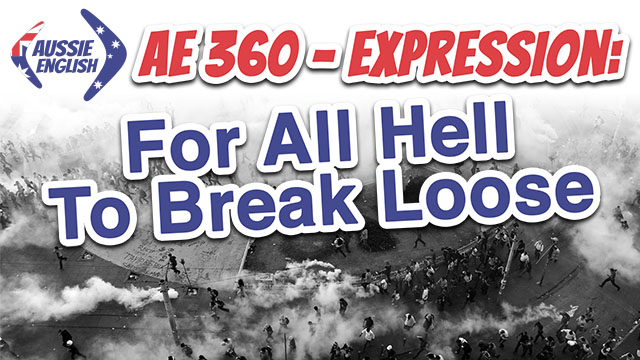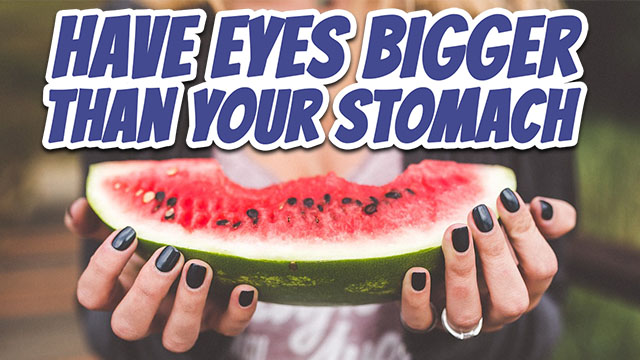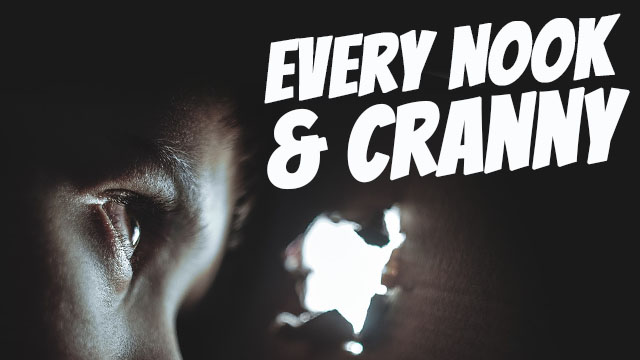Expression: On Cloud Nine
Learn Australian English in this Expression episode of Aussie English where I teach you how to use the expression ON CLOUD NINE like a native.
Watch the video with subtitles:
Expression: On Cloud Nine
G’day guys.
Welcome to this episode of Aussie English, and in today’s episode I’m going to be teaching you the expression ON CLOUD NINE.
So, as I said guys today’s expression is ON CLOUD NINE, TO BE ON CLOUD NINE.
The definition of ON CLOUD NINE is to be in a blissful state, in a state of real happiness, in blissful happiness, to be incredibly ecstatic, euphoric, to feel really good.
If I define the words in the sentence, obviously, the word NINE you know that this is the number after 8 and before 10, number NINE.
And, the word CLOUD is a visible mass of condensed water vapour floating in the sky.
So, everyone knows what A CLOUD is.
If you look up in the sky and you see those white masses, those white fluffy objects floating around in the sky out of which rain comes, thunder comes out, lightning comes out, those are clouds. Rain CLOUDS, storm CLOUDS, CLOUDS.
So, if you’RE ON CLOUD NINE this means that you are obviously in a state of blissful happiness, and in my mind I imagine sitting on A CLOUD.
The number’s kind of irrelevant, but TO BE ON THE CLOUD and just be like, “YES!”. You know, incredibly happy, ecstatic, euphoric, blissful, TO BE ON CLOUD NINE.
So, it originates from the mid-1930s, when I was looking this up. I thought it was actually going to be quite older, but the 1930s. So, (it’s) not even 100 years old.
And it was actually used in many different ways. There were different ways of saying TO BE ON CLOUD NINE, especially using just different numbers. They would say TO BE ON CLOUD SEVEN, TO BE ON CLOUD EIGHT, as well as TO BE ON CLOUD NINE, and I even think they used TO BE ON CLOUD THIRTY-SIX when I looked this up.
And it started being used in popular music towards the end of the 20th century.
So, towards the end of the 1980s there was an album by the English musician George Harrison called Cloud Nine, and I think there had been a few other songs as well in the 60s and 70s by other musicians that had also been called CLOUD NINE, and from what I was reading this is part of the reason they think that the phrase became pretty much always TO BE ON CLOUD NINE. So, since the 1980s CLOUD NINE became the predominant expression.
So, everyone will know what TO BE ON CLOUD NINE is whether you’re in America, Australia, England, Canada, New Zealand. It’s something that’s used everywhere in the English speaking world.
So, let’s go through some examples, guys.
So, if you’RE ON CLOUD NINE, ON CLOUD NINE.
Examples:
1.
Example number 1.
Imagine that you are a new couple. So, you’re a man or a woman and you have just found a partner.
You’ve fallen madly in love. You couldn’t be happier. You see each other every day. You’re obsessed with one another. You’re incredibly happy when you’re together.
You could say that that couple, those two people, ARE ON CLOUD NINE. I’M ON CLOUD NINE when I’m with this person. We’RE ON CLOUD NINE.
The idea of them BEING ON CLOUD NINE is that they are blissfully happy. They’re incredibly pumped. They’re just obsessed with one another, ecstatic, euphoric. They’re blissfully happy.
2.
Example number 2.
Imagine that someone goes to see their favourite band at a concert.
So, imagine you’re seeing some Australian bands like maybe ACDC or The Hunters And Collectors, and this is your favourite band.
You’re absolutely obsessed with these guys. When you get to see them live, which means you get to go to a gig, you get to see them on stage and they’re playing music.
Whenever you go you absolutely love it, and whilst you’re there your favourite song comes on.
So, imagine they start playing your favourite song. You’ve had a few beers. You’re feeling amazing. You’re in the mosh pit, you know, you’re dancing around. Your favourite song comes on.
You could say, “Oh! I AM ON CLOUD NINE. I AM ON CLOUD NINE! This is my song. I’m with my friends. I’m having a beer. I’m seeing my favourite band. I AM ON CLOUD NINE. I couldn’t be happier. I am blissfully happy.”
3.
A third example could be maybe a couple has just had their first child. So, they’ve been pregnant, or she’s been pregnant, obviously, for nine months, and they’ve been getting more and more excited as it’s been leading up to the day where they were going to have the baby.
And, they’ve gone to hospital. The wife’s waters have broken.
So, she’s about to deliver the baby. They go through the process of the delivery, or well, she goes through the process of delivery while the husband stands by and watches the whole process and just tries to help.
She gives birth to the baby. Everything’s good. The baby’s healthy.
You could say after that that the couple, the parents, the two people WERE ON CLOUD NINE. They couldn’t be happier. They have just had their first child. They’re ecstatic.
They’re euphoric. They’re blissfully happily… They’re blissfully happy*. They ARE ON CLOUD NINE.
So, hopefully you understand now how to use the expression TO BE ON CLOUD NINE, guys.
This is definitely one that I would recommend using, and just say it any time you are really really happy about something to explain that you literally couldn’t be happier about whatever it is that may be talking about in conversation.
So, as usual guys we’ll go through a quick substitution exercise at the end here so that you can practice your pronunciation of Australian English, and also learn and use the expression that we just went over.
And, I’m going to use this sentence, “I’m so blissfully happy.” and then I want you to substitute in ON CLOUD NINE for “Blissfully happy” and say, “I’M ON CLOUD NINE.”
So, I’m going to go through all of the different pronouns, I,YOU, HE, SHE, WE and THEY. I’m going to use contractions.
So, I’m going to say, “I’m”, “You’re”, “He’s”, “She’s”, and I’m going to substitute in “ON CLOUD NINE” for “Blissfully happy”.
So, don’t worry too much though guys about memorising all of this stuff.
Just keep going over it. Practice your pronunciation and it’ll become subconscious and you’ll just remember these different phrases and they’ll pop up in conversations without you having to think too much.
So, let’s go.
Substitution exercise:
- I’m so blissfully happy.
________________________________________
- You’re so blissfully happy.
________________________________________
- He’s so blissfully happy.
________________________________________
- She’s so blissfully happy.
________________________________________
- We’re so blissfully happy.
________________________________________
- They’re so blissfully happy.
________________________________________
All answers are in the PDF transcript.
Pronunciation Tip:
One thing to mention here guys, you may or may not have noticed, when I say “I’M_ON CLOUD NINE”, “You’RE_ON CLOUD NINE”, “He’S_ON CLOUD NINE”, “We’RE_ON CLOUD NINE”, or “They’RE_ON CLOUD NINE”, you’ll really hear me bounce from “I’m”, “You’re”, “He’s”, “She’s”, “We’re”, “They’re” onto “On”.
What do I mean by this?
So, because the word “On” starts with a vowel, the “O”, “On”, and the end “I’m”, “You’re”, “He’s”, “She’s”, “We’re”, “They’re” all ends with a consonant sound, at least, in the most case there. “We’re” and “They’re” doesn’t when spoken, but if followed by a vowel and there’s an “R” in there we pronounce the “R”.
Anyway, what I’m trying to get at, what I’m trying to talk about is the fact that you’ll hear me insert the consonant before the word “On” to make it flow.
So, instead of saying, “I’m on”, you’re going to hear me say, “I’m_on”. So, I’m really saying “’m_on”, “I’m_on”, “I’m_on”. With, “You’re on”, “You’re on”, I’m not going to have that “You’re……on”. I’m going to say “YOU’RE_ON”.
So, you’ll hear me insert that “R” there. This is a very Australian thing. “You’re_on”, “You’re_on”. “We’re_on”, “They’re_on”. And, the “R” disappears when there’s a consonant next.
So, in the case of, “You’re so blissfully happy”, you’re going to hear “You’re…..so” there’s no “R”. “You’re so…”. “You’re_on”, “We’re so”, “We’re_on”, “They’re so”, “They’re_on”.
And then in the case of “She’s” and “He’s”, obviously, if it’s followed by “So”, “He’s” and “She’s” ends with an “S” and “SO” begins with an “S”. So, it’s “He’s_so”, “She’s_so”, but then when the “S” is removed and there’s just the “O” there, we turn it into “He’z_on”, “She’ z _on”. So, it’s almost a “Z” sound. “He’ z _on”, “She’ z _on”, “He’ z _on”, “She’ z _on”.
Anyway, that’s just one little thing for you guys to go back and try and notice when you do this exercise.
Treat it as a listen and repeat exercise if you just want to practice your pronunciation, and particularly nail those liaisons, they’re called liaisons, where you’re linking the two words “I’m” and “On”, “I’m_on”, “He’s_on”, “She’s_on”, “We’re_on”, “They’re_on”, etc.
Go back and practice those, and try and use these elsewhere in Australian English. If you’re trying to learn the Australian English way of pronouncing these words and our accent, any time a word ends in an “R” or an “R” sound where an “R” would be the last consonant in that word and the following word starts with a vowel, in order to more easily say those words you add the “R” sound” in. “We’re_on”, “They’re_on”, “You’re_on”.
So, that’s just one more thing to think about when you’re learning Australian English guys. Anyway, I hope you’ve enjoyed this episode guys.
I hope it’s left you ON CLOUD NINE. I hope you’re ecstatic, euphoric. I hope you’re pumped. I hope you’re excited. I hope you’re blissfully happy.
And I’ll see you in the next episode.
All the best guys!
Check out all the other expression episodes below:
Here's what you get when you sign up!
- Read while you listen using the Premium Podcast player.
- Understand every word in every episode.
- Download all PDF transcripts and MP3s for 600+ episodes.
- Get access to bonus member-only episodes.












Responses